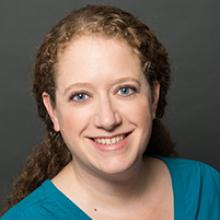Translating Comparative Effectiveness Reports for Consumers and Clinicians
For nearly a decade, AIR supported the John M. Eisenberg Center for Clinical Decisions and Communications Science at the Baylor College of Medicine in turning comparative effectiveness research results into practical information for decision making. Funded by the Agency for Healthcare Research and Quality, the Eisenberg Center translated and disseminated research findings for use by consumers, healthcare professionals, and policymakers.
AIR conducted focus groups and interviews with target audiences—for example, clinicians, consumers, and policymakers—to identify key messages, decision points, and user needs to develop materials based on comparative effectiveness reviews. AIR also evaluated draft materials for how well the content is understood by participants; wording, formatting, or display problems; and motivational or sensitivity problems; as well as conducting in-depth cognitive testing to evaluate draft materials for readability and usefulness in treatment decisions.
Over the course of the project, the AIR team conducted 300 individual interviews with clinicians, 310 individual interviews with consumers, and 17 focus groups with consumers to develop materials for more than 25 topics, including diabetes, high-blood pressure, traumatic brain injury and depression, autism, and preterm labor.
